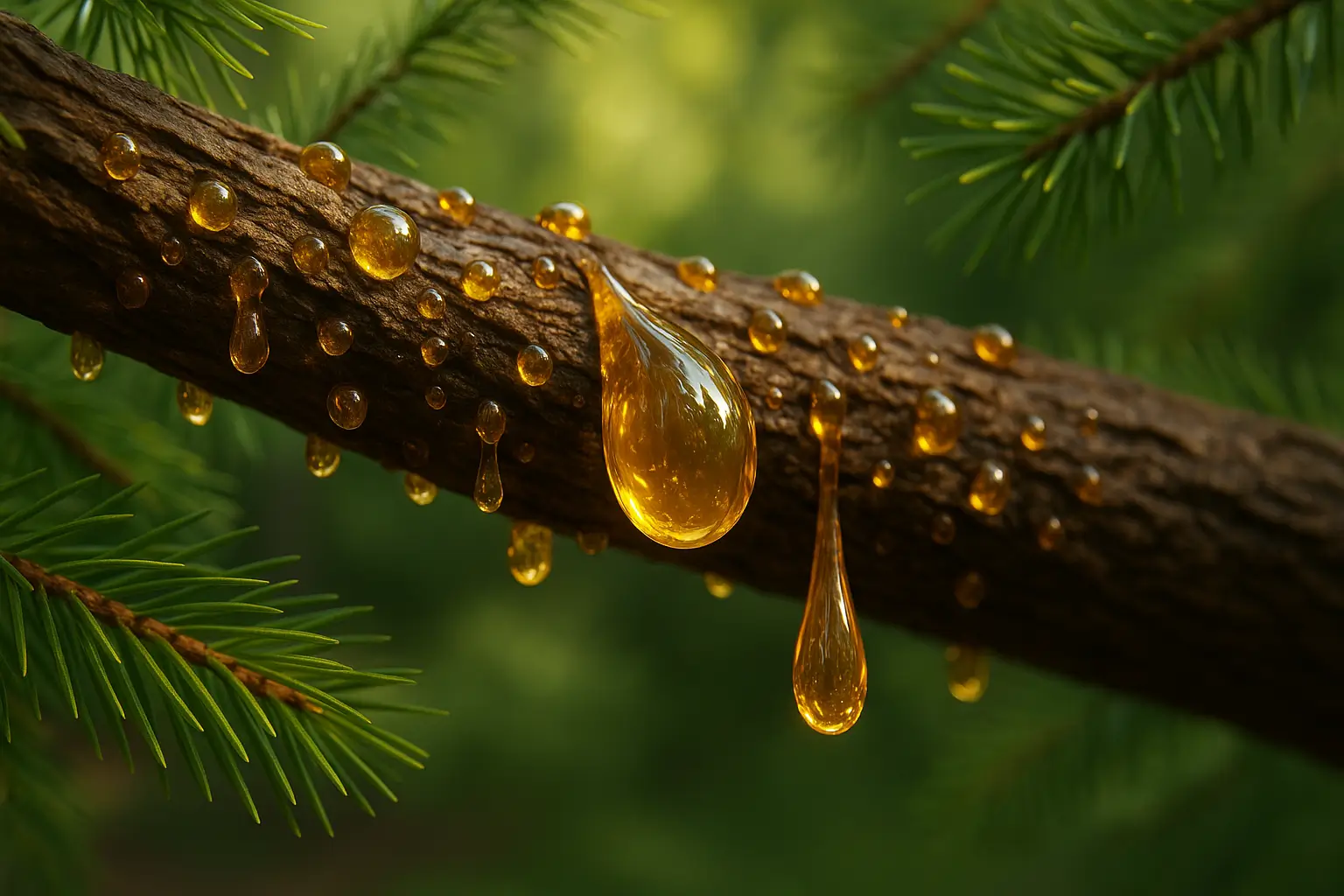Definition of Resins
- Resins are viscous, solid or semi-solid mixtures of organic compounds, mainly terpenoids and derivatives, exuded by plants (especially conifers) and some insects for protection and structural purposes.
Composition
- Diterpenes/Triterpenes: Backbone structures.
- Phenolic Compounds: Provide rigidity and reactivity.
- Other Compounds: Essential oils, alcohols, acids.
Advertisements
Sources of Resins
- Plant Resin: E.g., pine resin, frankincense.
- Insect Resin: E.g., lac insect exudates.
Extraction and Processing
- Harvested by tapping plants (e.g., incising tree bark).
- Processed to remove impurities, producing products like turpentine and rosin.
Advertisements
Uses
-
Industrial Applications:
- Varnishes and lacquers
- Adhesives (rosin)
- Incense and fragrances (frankincense, myrrh)
-
Pharmaceuticals and Medicine:
- Traditional antimicrobial and anti-inflammatory remedies
- Modern drug formulations
-
Art and Craft:
- Artists’ varnishes for paintings
- Rosin for string instrument bows
Biological Roles
- Defense Mechanism: Deters herbivores; inhibits fungi and bacteria.
- Wound Healing: Seals damaged areas to prevent infection.
Advertisements
Examples of Resins
- Podophyllotoxin: Lignan resin from the mayapple plant, used as a precursor for anti-cancer drugs.
- Curcumin: Polyphenolic compound from turmeric, used for its anti-inflammatory and antioxidant properties.

